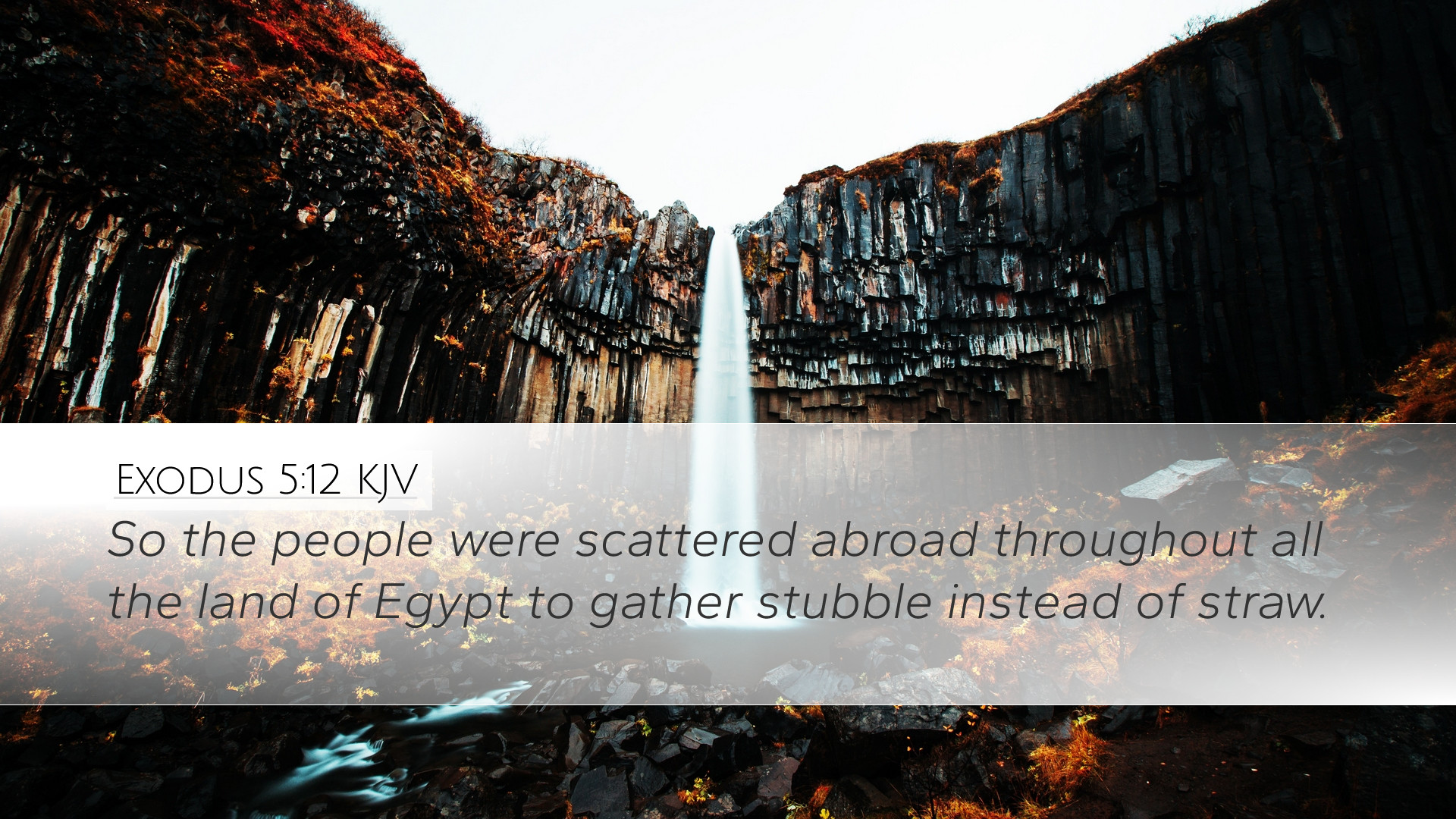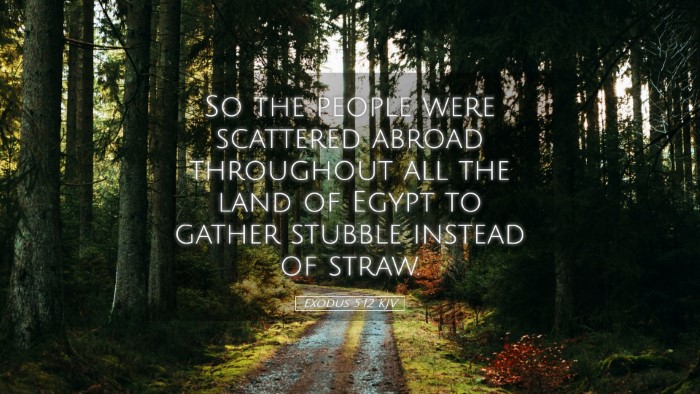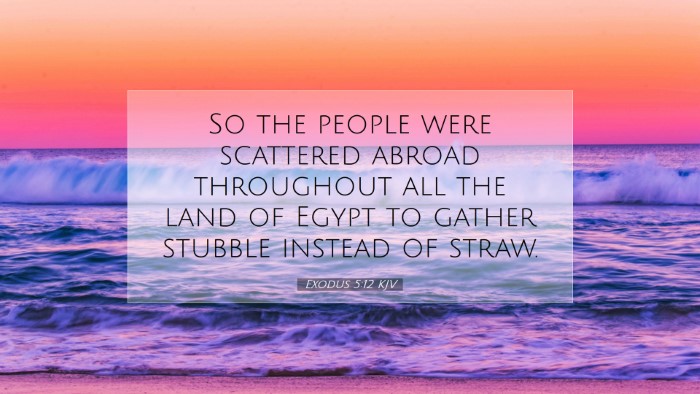Exodus 5:12 - Biblical Commentary
Verse Reference: Exodus 5:12 - "So the people were scattered abroad throughout all the land of Egypt to gather stubble instead of straw."
Introduction
The verse occurs within the narrative of Moses and Aaron confronting Pharaoh regarding the Israelites' oppression. It highlights a critical moment where the burdens of the Israelites increase, demonstrating both their plight and the stubbornness of Pharaoh. Understanding this text through the lenses of public domain commentaries helps in grasping the theological and historical implications of the verse.
Contextual Analysis
The context of Exodus 5 is critical. Moses and Aaron have just approached Pharaoh with God's command to let the Israelites go. Pharaoh’s response is one of resistance, increasing the labor conditions of the Israelites, emphasizing his rejection of the God of Israel.
Matthew Henry's Commentary
Henry interprets the Israelites' increased burdens as a manifestation of Pharaoh’s hardened heart and obstinate spirit. He notes that this severe oppression serves to illustrate the deeper theological truths about human resistance to divine will. The phrase “scattered abroad” indicates not only the physical labor imposed upon the Israelites but also their psychological and social disarray as a people. This scattering symbolizes their subjugation and degradation.
Albert Barnes' Notes
Barnes highlights how the task of gathering stubble indicates a degradation of the Israelites' status. This command from Pharaoh represents a shift from a laborious but somewhat organized work to utter chaos and desperation. He emphasizes that the Israelites' situation illustrates the trials of faith, where God’s people are tested in their trust in Him amidst seemingly insurmountable oppression.
Adam Clarke's Commentary
Clarke expands upon the significance of the straw and stubble in the brick-making process. He explains how straw is traditionally used to bind the materials together, and its absence implies structural weaknesses in the Israelites’ work. The lack of straw symbolizes not only a physical lack but also spiritual despair. Clarke points to the harsh reality that Pharaoh’s decree was calculated to make the Israelites miserable, thereby breaking their spirits and diverting their focus from divine promises.
Theological Implications
This verse presents profound theological implications, particularly regarding the oppression of God’s people and the nature of God's deliverance.
- Divine Providence: The conditions faced by the Israelites serve to demonstrate God's sovereignty. Though oppression increases, God is ultimately in control, working out His purposes in ways that may not be readily apparent.
- The Nature of Opposition: Pharaoh’s reaction illustrates the reality of spiritual opposition that believers face. This opposes the divine mandate, revealing a conflict between light and darkness.
- Preparation for Deliverance: The suffering experienced is often a precursor to God's deliverance. The misery may lead the people to cry out more earnestly to God, paving the way for redemption.
Lessons for Today
Exodus 5:12 serves as an important reminder for contemporary believers. The trials faced by the Israelites can resonate with the struggles faced by Christians today.
- Endurance in Trials: Like the Israelites, present-day believers are often called to endure hardship. Such experiences can deepen faith and reliance on God.
- The Reaction to Injustice: The verse calls attention to social justice. As the Israelites suffered, so should the Church today seek to advocate for those in similar situations.
- Hope in Deliverance: Just as God eventually delivered the Israelites, believers are encouraged to hold onto hope amidst struggles, trusting in God’s ultimate fidelity.
Conclusion
Exodus 5:12 encapsulates a critical moment in the saga of Israel’s oppression and anticipated deliverance. Through the insights drawn from public domain commentaries, one can see the multifaceted layers of meaning embedded within this verse. It invites pastors, students, theologians, and scholars to reflect on the nature of God’s sovereignty, the reality of human suffering, and the active role of faith amid trials. May this exploration encourage deeper spiritual insight and provide comfort to those who find themselves in their own stubble-gathering seasons.


